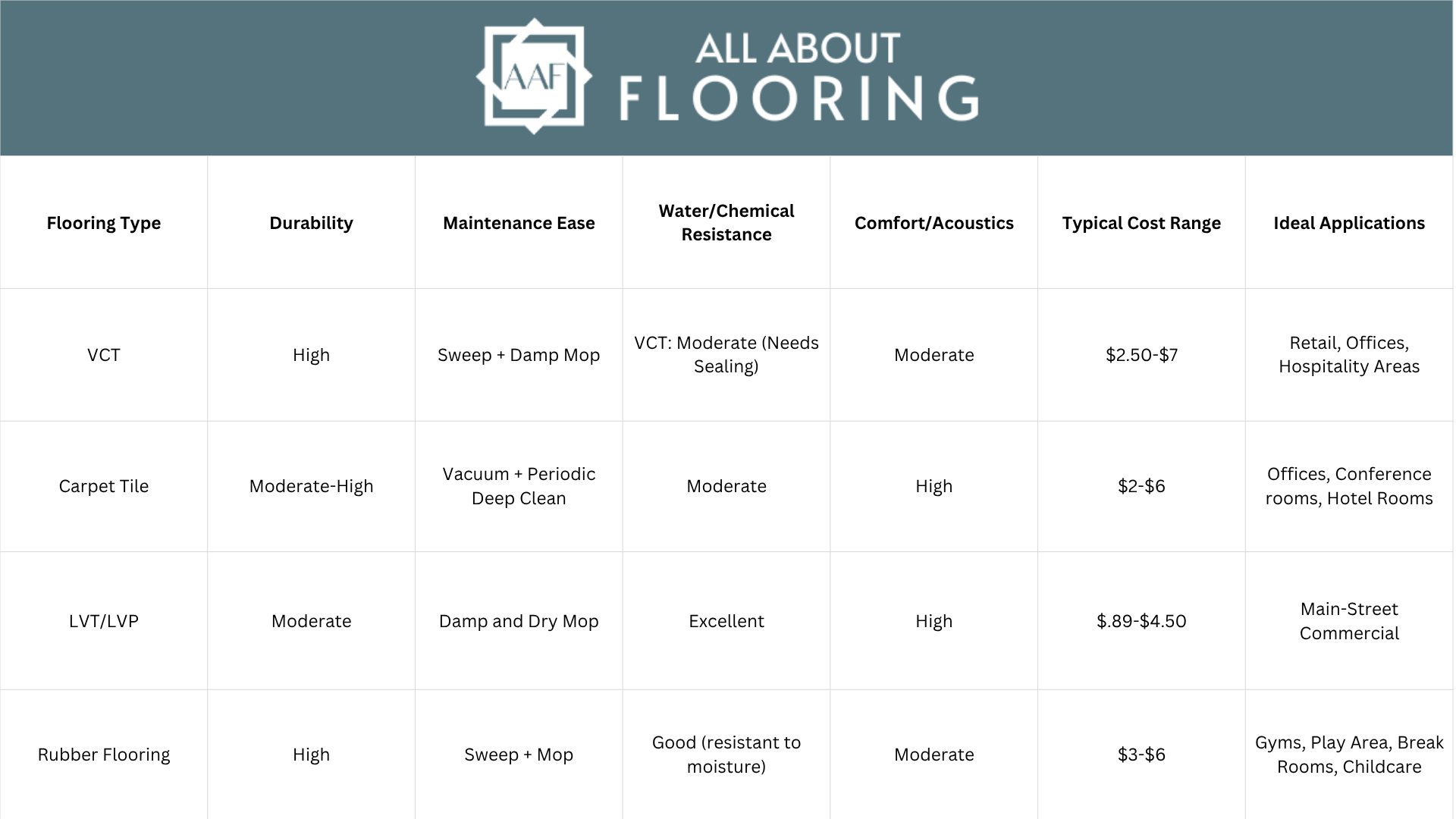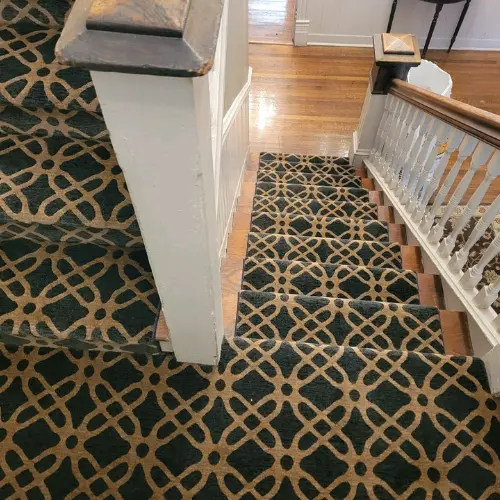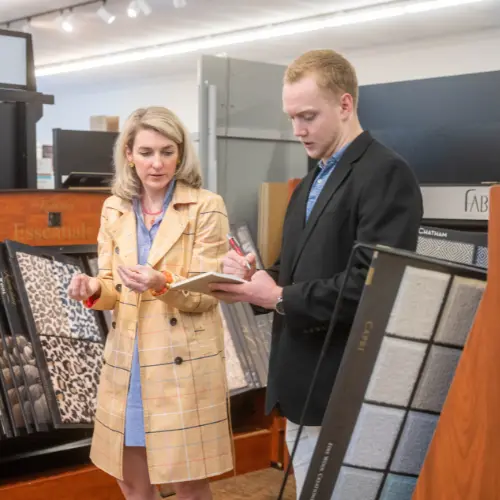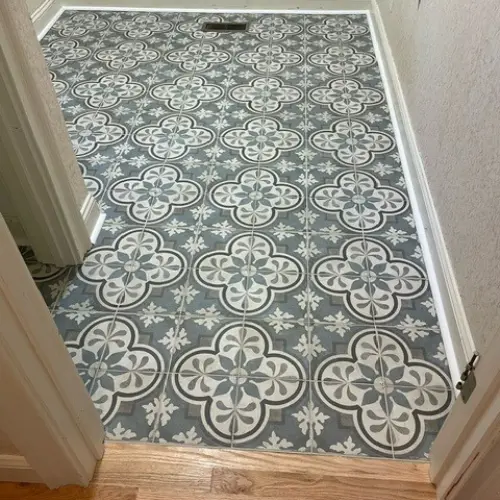What Is the Best Flooring Option for Commercial Spaces?
Choosing the right flooring for commercial places—offices, retail stores, restaurants, or hospitality venues—requires balancing durability, maintenance, safety, and aesthetics. This guide reviews leading commercial flooring types to help business owners and facility managers make an informed decision.
.webp)
Why Commercial Flooring Needs Are Unique
Commercial environments see higher foot traffic, heavier loads (furniture or equipment), and stricter maintenance schedules compared to residential settings. Key considerations include:
- Durability & Lifespan: Flooring must withstand constant wear, spills, and potential impacts.
- Maintenance & Cleaning: Quick, cost-effective cleaning routines to minimize downtime.
- Safety & Compliance: Slip resistance, fire ratings, and sometimes acoustic performance.
- Design & Branding: Reflect the business’s image—from sleek office spaces to inviting retail floors.
- Budget & ROI: Upfront cost versus long-term replacement and upkeep.
Top Commercial Flooring Options
1. Commercial Vinyl Composition Tile (VCT) & Luxury Vinyl Tile (LVT)
- Why It’s Popular:
- Durability: VCT and LVT are designed for heavy foot traffic; LVT often has enhanced wear layers.
- Maintenance: Easy sweeping and damp mopping; some products offer scratch- and stain-resistant surfaces.
- Water Resistance: LVT is often waterproof, suitable for break rooms, restrooms, or light-industrial areas.
- Design Flexibility: Wide range of colors, patterns, and textures—can mimic wood, stone, or abstract designs that align with branding.
- Durability: VCT and LVT are designed for heavy foot traffic; LVT often has enhanced wear layers.
- Considerations:
- Installation: VCT typically requires waxing and buffing cycles; LVT often installs via click-lock or adhesive.
- Lifecycle Cost: VCT may need periodic stripping and resealing; LVT may have higher upfront but lower ongoing maintenance. See some pictures of our latest LVT projects here.
- Installation: VCT typically requires waxing and buffing cycles; LVT often installs via click-lock or adhesive.
- Best For: Retail stores, office corridors, hospitality common areas, light healthcare settings.
2. Commercial Carpet Tile
- Why Consider:
- Acoustic Benefits: Reduces noise in open offices, corridors, and conference rooms.
- Modular Replacement: Damaged or stained tiles can be replaced individually, lowering long-term costs.
- Design Versatility: Mix-and-match patterns and colors to reinforce branding or delineate zones.
- Comfort: Softer underfoot, improving employee comfort in standing workstations.
- Acoustic Benefits: Reduces noise in open offices, corridors, and conference rooms.
- Considerations:
- Maintenance: Requires regular vacuuming and periodic deep cleaning (read more about professional carpet cleaning here).
- Moisture Sensitivity: Less suitable for areas prone to standing water; choose moisture-resistant backing if needed.
- Maintenance: Requires regular vacuuming and periodic deep cleaning (read more about professional carpet cleaning here).
- Best For: Offices, conference rooms, hotel rooms, certain retail areas.
3. Rubber Flooring
- Why It’s Useful:
- Comfort & Safety: Cushioned underfoot reduces fatigue; slip-resistant surface ideal for gyms or play areas.
- Durability: Resists heavy impacts; easy to clean; often used in fitness centers or childcare facilities.
- Noise Reduction: Absorbs sound—beneficial in multi-story buildings or busy corridors.
- Comfort & Safety: Cushioned underfoot reduces fatigue; slip-resistant surface ideal for gyms or play areas.
- Considerations:
- Aesthetic Range: Often limited in appearance compared to LVT or tile, though modern rubber tiles come in various colors/patterns.
- Installation: Usually glued down; seams may require attention to maintain hygiene standards.
- Aesthetic Range: Often limited in appearance compared to LVT or tile, though modern rubber tiles come in various colors/patterns.
- Best For: Gyms, fitness studios, daycare centers, some healthcare zones, industrial break rooms.
Comparison Table of Commercial Flooring Types

Factors to Evaluate Before Choosing
- Foot Traffic & Load
- Estimate daily foot traffic and equipment/furniture weight. Heavy loads or constant traffic lean toward highly durable options like LVT, polished concrete, or epoxy.
- Estimate daily foot traffic and equipment/furniture weight. Heavy loads or constant traffic lean toward highly durable options like LVT, polished concrete, or epoxy.
- Maintenance Resources
- Determine cleaning staff availability and budget. Easy-clean surfaces (LVT, epoxy) reduce labor time.
- Determine cleaning staff availability and budget. Easy-clean surfaces (LVT, epoxy) reduce labor time.
- Aesthetic & Branding
- Flooring contributes to brand image. Retail or hospitality may prioritize a welcoming design, while industrial or healthcare sites focus on functionality and hygiene.
- Flooring contributes to brand image. Retail or hospitality may prioritize a welcoming design, while industrial or healthcare sites focus on functionality and hygiene.
- Safety & Compliance
- Check slip-resistance ratings (e.g., ADA guidelines), fire ratings, and any industry-specific requirements (e.g., sanitary standards in healthcare or food service).
- Check slip-resistance ratings (e.g., ADA guidelines), fire ratings, and any industry-specific requirements (e.g., sanitary standards in healthcare or food service).
- Installation Timeline & Disruption
- Some installations (e.g., epoxy, polished concrete) require curing time and may disrupt operations longer. Plan off-hours or phased installs.
- Some installations (e.g., epoxy, polished concrete) require curing time and may disrupt operations longer. Plan off-hours or phased installs.
- Budget & Lifecycle Cost
- Consider not just initial material and labor costs, but also ongoing maintenance, resealing, or tile replacement costs.
- Consider not just initial material and labor costs, but also ongoing maintenance, resealing, or tile replacement costs.
- Acoustic Needs
- In open offices or multi-story buildings, select flooring that contributes to noise reduction (carpet tile, rubber, or add acoustic underlayment under LVT).
- In open offices or multi-story buildings, select flooring that contributes to noise reduction (carpet tile, rubber, or add acoustic underlayment under LVT).
- Moisture & Chemical Exposure
- Areas prone to spills or chemicals (restaurants, labs) need waterproof, chemical-resistant floors like LVT or epoxy.
- Areas prone to spills or chemicals (restaurants, labs) need waterproof, chemical-resistant floors like LVT or epoxy.
Maintenance Best Practices for Commercial Floors
- Routine Cleaning
- Daily: Sweep or vacuum to remove debris.
- Frequent: Damp mop with recommended cleaners—avoid harsh chemicals if not specified.
- Daily: Sweep or vacuum to remove debris.
- Protective Measures
- Use mats at entrances to trap grit. Furniture/equipment pads to prevent scratches.
- Apply protective coatings or sealants as manufacturer advises.
- Use mats at entrances to trap grit. Furniture/equipment pads to prevent scratches.
- Deep Maintenance
- VCT: Periodic stripping and resealing/waxing cycles.
- Carpet Tile: Hot water extraction on schedule 3-4 times a year. If you are interested in the cost of cleaning, you can book a cleaning proposal with us here.
- Polished Concrete/Epoxy: Reseal or recoat every few years to maintain appearance and resistance.
- VCT: Periodic stripping and resealing/waxing cycles.
- Inspection & Repairs
- Replace damaged carpet tiles or vinyl planks promptly.
- Address cracks in concrete or grout issues early to prevent larger repairs.
- Replace damaged carpet tiles or vinyl planks promptly.
Ready to Upgrade Your Commercial Flooring?
Selecting the optimal flooring for your business impacts durability, maintenance costs, and customer or employee experience. At All About Flooring, we specialize in commercial projects—from small offices to large retail or industrial spaces in Greenville, and the rest of Upstate South Carolina. See some of our latest projects and request a consultation here. Or visit our showroom located at 2111 N Pleasantburg to see our entire commercial line.





